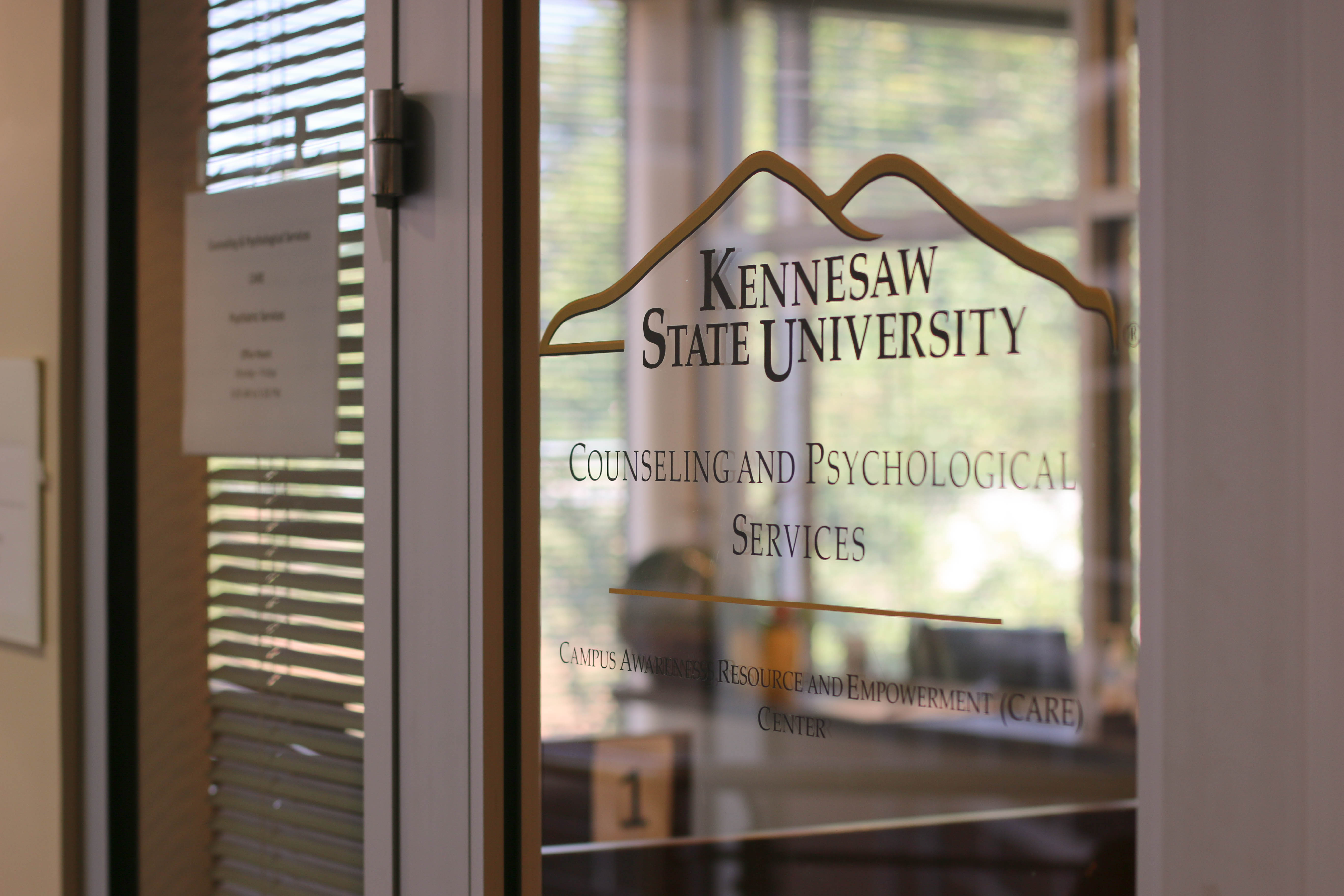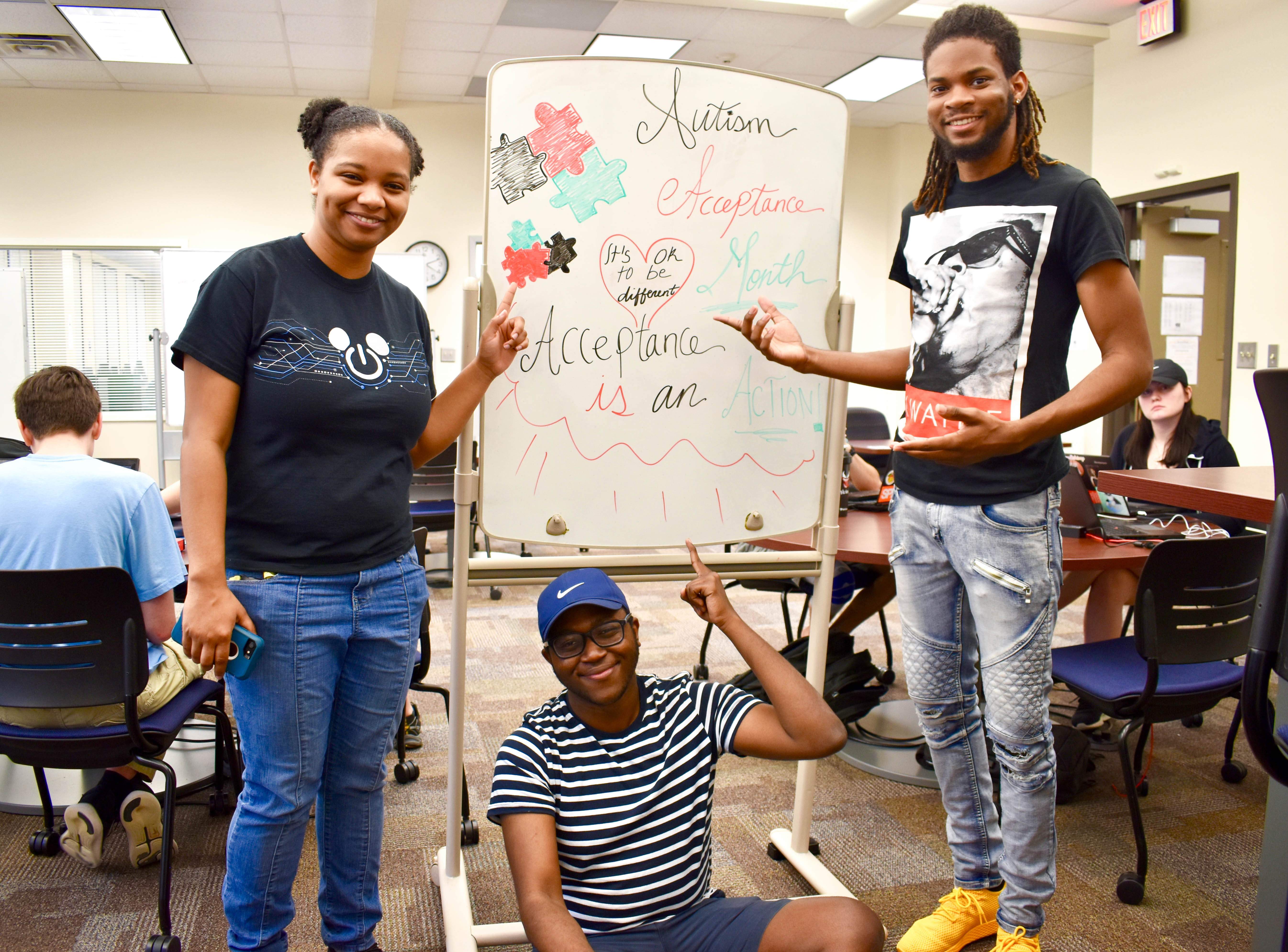College tends to be a source of stress for many students, and it can be especially difficult for those who suffer from mental illness.
No matter what you’re dealing with, you can take advantage of free on-campus counseling.
“Students seek counseling for multiple reasons,” Marcy Stidum, the associate director for Counseling and Psychological Services, said in an email.
Students may want to learn how to cope with stress, process their emotions, treat and handle their mental illness or deal with other complicated issues in their lives.
While Kennesaw State University’s student body faces many issues, treatment for anxiety and depression are the most common reasons students come to counseling.
For some students, talking to a counselor may seem intimidating or scary. In a society that often stigmatizes those seeking help, many people are unfortunately not benefiting from psychological and psychiatric care.
In fact, a study conducted by the American Psychological Association found that 48 percent of American households have had someone visit a mental health professional. Another study conducted by the National Institute of Mental Health found that nearly one-fourth of Americans have been diagnosed with some form of mental disorder.
Despite these findings, a report published in the Psychological Science in the Public Interest found that about 40 percent of people with mental illness do not receive medical care.
“There’s nothing wrong with getting the help and support you need during moments of distress,” Stidum said.
As someone diagnosed with Obsessive-Compulsive Disorder, I can attest to why seeking psychological and psychiatric help is a good idea. I regularly attend counseling and psychiatric appointments here at KSU, and I find them to be tremendously helpful.
KSU students can attend individual, group or couples’ counseling sessions, as well as career and relaxation workshops and psychiatric and case management appointments.
Students can qualify for up to 16 sessions of couples’ or individual counseling. These are conducted in a private environment with a psychologist. Group counseling sessions are unlimited, but students are only allowed to participate in one group per semester.
Some of the groups offered include Anger Management, Healing from Grief, Stress Less, Understanding Self and Others, and Mind over Mood. Descriptions of these sessions, along with times and locations, can be found on KSU’s Counseling and Psychological Services webpage.
Stidum also suggests that students who may be initially opposed to counseling should come to workshops or walk-in consultations. The walk-in hours on the Kennesaw Campus are Monday through Thursday from 10 a.m. to 4 p.m. and Friday from 10 a.m. to 12:30 p.m. The office is located in Kennesaw Hall, room 2401.
The hours on the Marietta Campus are Tuesday and Wednesday from 10 a.m. to 11:30 a.m. and from 1 p.m. to 4 p.m. On Thursday, the office is open for walk-ins from noon to 4 p.m. The office is located in the Joe Mack Wilson Student Center, room 170.
Information about workshops can be found on the Counseling and Psychological Services webpage.
You must be a student enrolled in classes to have access to these services. The only exception to this rule is during summer semesters, when students can continue appointments they started in the spring even if they are not taking summer courses. This exception only applies to students registered for fall classes, according to Stidum.
While no formal referral services are offered, KSU will refer alumni and graduating students to off-campus psychologists upon request, according to Stidum.
In recent semesters, more and more students have utilized the Counseling and Psychological Services, and hopefully the numbers will continue to rise. My hope is that students will be proactive about their mental health by taking advantage of the many resources at KSU.




—-Removing the stigma of psychological care ??
Who taught you to say there was one? Are you aware of the harm you do?